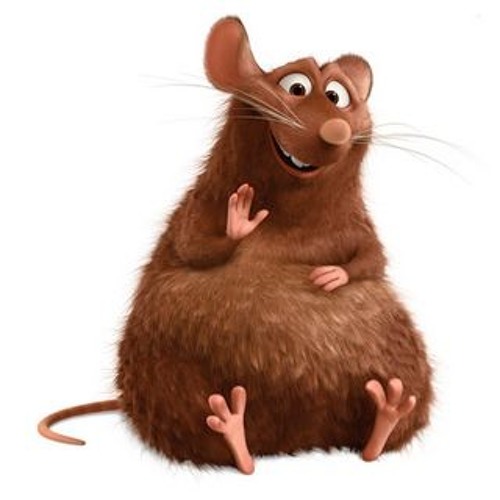Big Fat Lies!
Mar 27, 2022
a 5-minute read
Have you heard people say that being overweight is a choice? Or its just about calories in versus calories out? Well, ignorant misinformed statements like this are said by those with little understanding of the complex and multifactorial nature of obesity and are just... big fat lies!
As someone who has struggled with my weight from a young age and who was mercilessly bullied for being a ‘fat kid’, I’ve had a personal interest in weight management for as long as I can remember. In fact, I think it’s one of the reasons I entered into healthcare and why I’m such a strong advocate for exercise, having found it to be one of the best ways to control my weight after trying and failing many other methods.

Although exercise has and still does help me manage my weight I know it’s not the answer for everyone, and I've slowly come to understand that weight management is a complex and complicated topic that goes far beyond exercise and calories. Unfortunately, many others have not and many still believe that being overweight is a condition brought on by simply choosing to eat too much and exercise too little.
Calories In / Calories Out
This is bullshit and although in principle this mantra sounds accurate and simple, it’s just not this simple or accurate. The causes of weight gain and obesity are far more complex than just ‘calories in calories out’ involving physiology, psychology, and sociology.
Saying obesity is as simple as calories in versus calories out is no different than saying poverty is as simple as money in versus money out, or depression is simply about cheering up and being less sad. I think you would all agree that no one chooses to be poor or depressed so why is it any different for obesity?
In the late 1990s, obesity was classed by the World Health Organisation as a global pandemic due to the direct links it has with many other diseases such as diabetes, hypertension, cardiovascular disease, osteoarthritis, cancer, and many mental health issues such as depression (ref).
There is still much debate around if obesity should be considered a ‘disease’. But when you consider a disease is defined as…
- A condition that impairs function and reduces life expectancy
- A condition that leaves an individual more susceptible to other diseases
- A genetic impairment that leads to other functional impairment
Obesity checks all of these, even the last one! Yes, you heard me obesity is a genetic impairment.
There is strong evidence that clearly shows obesity is dictated by genetic factors as demonstrated in identical twin studies, done in multiple countries, on various aged individuals (ref).
It is also known that genetic variations can increase an individual's propensity to obesity such as leptin and POM-C receptor deficiencies (ref, ref). Our genes play an important role in how we all respond to the foods we eat, the number of calories we consume, and the environments we consume them in.
For example, have you ever wondered why two people who eat the same types and amounts of food often have completely different weights and body fat percentages?
An interesting study conducted on 12 pairs of identical twins closely monitored the effects of overfeeding them by 1000 calories a day, every day, for 100 days. They found weight gains were very similar for each twin, but varied hugely between the pairs of twins from 4kg to 13kg (ref).
This clearly shows how genetics has a role in determining how much weight is gained based on the calories consumed. There have also been a number of studies that looked into the effects of genetics on weight gain in rats to try and see if they could find any more answers.
Fat Rats
A study on 100 rats who were all fed the same high-calorie diet for a few months found a lot of variation in amounts of weight gain, with a few of the rats not putting on any weight at all, a few rats putting on huge amounts of weight, and most of the other rats falling somewhere in between (ref).
Now the interesting part of this study is they then took the rats from this trial who didn’t put on any weight and bred them together, as well as taking the rats who put on the most weight in the trial and bred them together. After a few rounds of breeding they got two very different types of rat.
In the first group of rats they got offspring who were very diet-resistant, that is rats whose weight did NOT increase even when they over-consumed calories hugely. However, in the other group of rats, they got obesity-prone offspring who gained weight very quickly and very easily with just small overconsumption of calories.
What’s also interesting is that if you take these obesity-prone rats and place them on a low-calorie diet they do lose weight, but as soon as their calories were returned back to normal baseline amounts their weight quickly returned back to their starting obese weight, even though they were not over consuming calories. This means you can get an obese-prone rat to lose weight, but unless you keep it on low-restricted calories forever its inherent nature is to be a fat rat.

Now, of course, rats are not humans, but there are likely to be similar genetic variations in weight gain in the presence of extra calories, with some humans not putting on any weight and some humans putting on lots of weight with just the slightest amounts of overconsumption.
Humans have had the same genes 1000’s of years, and it's only recently that obesity has become a bigger problem, so how do we explain this? Well, the obvious answer is the sudden increase of very fast and easy access to very calorie-rich tasty appealing and addictive foods.
It is now extremely easy to eat your entire daily quota of calories in a single meal that doesn’t cost much and doesn’t leave you satisfied for long. High-calorie meals full of corn starches and sugars, not to mention sugary drinks and alcohol that can contain 1000’s of calories without providing much satiety mean we over-consume easily.
Although our genes play a big role in our weight, our environment also plays a huge role too. The readily available abundance of calories in many modern lifestyles is a relatively ‘new thing’ in human evolution, and it appears our genes haven't quite managed to adapt and it's not certain if they ever will.
In our history, genetic selection has prepared and equipped us much better for famine rather than feast, and for good reason. Food used to be scarce and infrequent, and periods of starvation were common throughout human history. Obviously, this was difficult and unpleasant to deal with, but the opposite scenario we now face isn't any better?
So if obesity is a disease the question we need to ask, just like we would for any other disease, is how can we prevent, treat, or even cure it? Well just like any complex disease there will not be any one, single, simple, quick fix or solution. However, one interesting area that could hold a lot of potential is how our neurophysiology can affect our behaviour.
Fat Hormones?
A neurotransmitter called GLP-1 has been shown to affect nerve cells that control whether we feel full or not, and so dictate if we eat or not, and GLP-1 has been found in both our brains and our guts allowing them to ‘speak’ to each other (ref). Research has shown that if you increase levels of GLP-1 your desire to eat is significantly reduced and even halted, acting like the full signal on your car fuel tank and although more work is needed there are some promising results here (ref)
Of course, GLP-1 or any one neurotransmitter in isolation is not the whole answer to obesity and there are numerous other avenues of research into physiology, psychology, and behaviour change needed, not to mention a huge shift in governmental and societal approaches and beliefs to food and weight management. However, research like this does give us some insight into the complexity of obesity and some hope that there are solutions for this growing pandemic.
Moving forward we all have to recognise that if anyone wants to lose some weight they often have to change their behaviour but also their environment to do this, which isn't always easy or possible to do. However, if we want to change a population's weight then it is essential that we all change the environment so that it is conducive to weight loss for everyone!
Lose some weight, lose some pain
Personally, I think a lot more healthcare and fitness professionals need to be much better educated in the complexity of obesity and far better educated and equipped to help and support those with it. A recent paper has highlighted how obesity is highly prevalent in chronic pain populations, and as a physio, I have found helping some people lose some weight can be a great way to help them lose some pain (ref).
Not only does losing weight decrease some of the physical and mechanical loads on our bodies which may be sensitive or irritated, but it can also, and probably more so, help to lower systematic inflammation and improve a host of other metabolic and neuroimmune functions.
More importantly, I think helping someone in chronic pain lose some weight by helping them find some strategies that work for them in their current situation, can help improve their confidence and self-efficacy which can in turn, help them gain control and ownership over many other aspects of their lives which may help mediate their pain.
Again, I am not going to say this is simple or easy to do, but from my own personal experience I know how much better I felt once I gained control over my own weight, and I think many others will do too.

As always, thanks for reading
Adam
Stay connected with new blogs and updates!
Join my mailing list to receive the latest blogs and updates.
Don't worry, your information will not be shared.
I hate SPAM, so I promise I will never sell your information to any third party trying to sell you laser guided acupuncture needles or some other BS.

